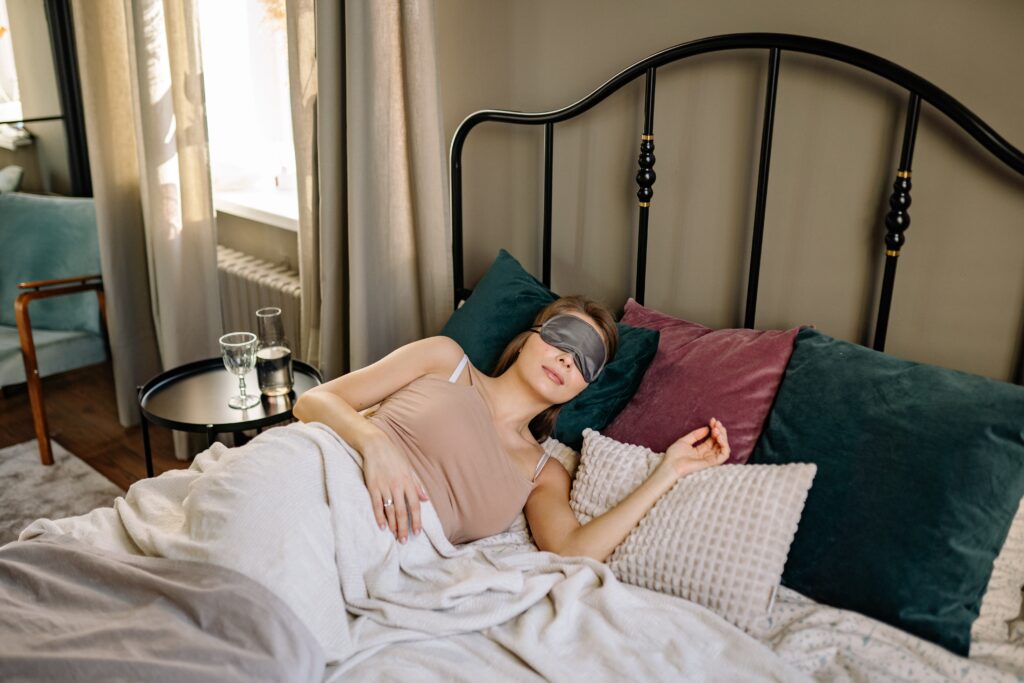Is Sleep Divorce Healthy or Unhealthy?
The sleep separation trend is growing although people feel embarrassed or shame sharing this arrangement. According to a recent survey conducted by the National Sleep Foundation, one in 10 couples sleep separately in separate rooms and one in four sleeps in the same room but in separate beds.

According to the survey report, 25 to 40 percent of couples find 2 master bedrooms house, confirmed by home builders or estate agents.
Here, we will discuss sleep divorce trends healthy or unhealthy, the answer to this question, is not so simple. There is little research on the subject of room/bed separation and its effect on life partners.
Signs That You Might Be Headed Towards a Sleep Divorce
- You may be worried at the bedtime
- You feel comfortable using earplugs
- You use Sleeping Pills
- or you take alcohol for sleeping
- Sleeping while Watching TV
Sleep is a crucial component of our overall health, and the quality of our sleep can significantly impact our physical and mental health. For couples who struggle with conflicting sleep patterns or disturbances during the night, the concept of a “sleep divorce” has gained attention. But is a sleep divorce a healthy solution for you and your partner?
We will explore here the concept of a healthy/unhealthy sleep divorce, its potential benefits and drawbacks, and alternative solutions to consider.
1. What is Sleep Separation or Sleep Divorce
A sleep divorce refers to the practice of sleeping in separate beds or bedrooms, allowing each partner to have their own dedicated sleep space. It involves prioritizing individual sleep needs and preferences over sharing a bed with a partner. While it may seem unconventional, sleep divorce can be a practical solution for couples who have different sleep schedules, sleep disturbances, or incompatible sleep habits.
2. Benefits of Sleep Divorce
Improved Sleep Quality
One of the primary benefits of a sleep divorce is improved sleep quality. When sleeping separately, partners can create an environment that suits their individual needs, such as temperature, noise level, or mattress firmness. By eliminating sleep disruptions caused by a partner’s movements, snoring, or different sleep schedules, both individuals can experience more restful and uninterrupted sleep.
Reduced Sleep Disruptions
Sharing a bed with a partner can sometimes lead to sleep disruptions, such as being kicked, elbowed, or having the covers pulled. These disturbances can negatively impact sleep quality and leave individuals feeling tired and irritable. Opting for a sleep divorce can minimize these disturbances, allowing each partner to have their own sleep space and reducing the chances of unintentional disruptions.
Individualized Sleep Preferences
Everyone has unique sleep preferences. Some individuals may prefer a cooler temperature, while others may prefer complete darkness or silence. In a sleep divorce arrangement, partners can create their own sleep environment tailored to their specific preferences. This can contribute to better sleep and overall well-being, as individuals can optimize their sleep conditions to suit their needs.
3. Potential Drawbacks of Sleep Divorce Healthy or Unhealthy
Emotional Disconnection
One potential drawback of a sleep divorce is the potential for emotional disconnection between partners. Sharing a bed can provide an opportunity for physical closeness, intimacy, and bonding, which may be missed when sleeping separately. It’s important to find alternative ways to maintain emotional connection and intimacy outside of the bedroom to prevent a sense of emotional distance.
Lack of Intimacy
Physical intimacy plays a vital role in romantic relationships. Sleeping separately may reduce opportunities for spontaneous physical closeness, cuddling, or intimacy before sleep. Couples considering a sleep divorce should explore alternative ways to foster intimacy and maintain a strong emotional and physical connection with their partner.
Communication Challenges
Sleeping separately may also present communication challenges, as partners may have less face-to-face time before sleep or upon waking up. It’s essential to establish open lines of communication and find dedicated time to connect and discuss important matters outside of the bedroom. Regular communication can help maintain a strong and healthy relationship.
4. Factors to Consider Sleep Needs and Preferences

Before considering a sleep divorce, it’s crucial for both partners to assess their individual sleep needs and preferences. Discussing factors such as sleep schedules, comfort preferences, and any specific sleep disturbances can provide insight into whether a sleep divorce is a suitable solution.
Relationship Dynamics
The dynamics of a relationship play a significant role in determining the feasibility of a sleep divorce. Open and honest communication about the potential impact on the relationship, emotional needs, and alternative ways to foster connection is vital. It’s important to ensure that both partners feel heard, supported, and valued in the decision-making process.
Bedroom Setups
Practical considerations, such as the availability of separate sleeping spaces or the ability to create individual sleep environments, are crucial when contemplating a sleep divorce. Assessing the feasibility of accommodating separate beds or bedrooms within the living space is essential for a successful transition.

5. Alternative Solutions
Improving Sleep Hygiene
Before resorting to a sleep divorce, it’s worth examining and addressing any underlying sleep hygiene issues that may contribute to sleep disturbances. Practicing good sleep hygiene habits, such as maintaining a consistent sleep schedule, creating a comfortable sleep environment, and implementing relaxation techniques, can significantly improve sleep quality for both partners.
Seeking Couples Therapy
If conflicting sleep patterns or disturbances are causing significant strain in the relationship, seeking couples therapy can be a helpful option. A therapist can provide guidance, support, and strategies for improving communication, finding compromise, and fostering intimacy while addressing sleep-related challenges.
Compromise and Communication
In many cases, finding a compromise that satisfies both partners’ needs is possible without resorting to a sleep divorce. Open and honest communication, active listening, and a willingness to find a middle ground can help couples navigate sleep challenges while maintaining a shared sleep space.
Things to Remember
A sleep divorce can be a viable solution for couples who struggle with incompatible sleep patterns or disturbances during the night. It offers the potential for improved sleep quality, reduced sleep disruptions, and individualized sleep preferences. However, it’s essential to consider the potential drawbacks, such as emotional disconnection, lack of intimacy, and communication challenges.
Evaluating factors like sleep needs, relationship dynamics, and practical considerations can guide the decision-making process. Exploring alternative solutions, such as improving sleep hygiene, seeking couples therapy, or finding compromise through communication, can also be beneficial. Ultimately, the decision to pursue a sleep divorce should be based on open communication, mutual understanding, and a shared commitment to maintaining a healthy and fulfilling relationship.
FAQs
Can a sleep divorce help improve my sleep quality?
Yes, a sleep divorce can contribute to improved sleep quality by eliminating disturbances and allowing each partner to create an environment tailored to their sleep preferences.
Will a sleep divorce negatively impact my relationship?
While a sleep divorce may pose challenges to emotional connection and intimacy, open communication, finding alternative ways to foster connection, and seeking couples therapy can help mitigate potential negative impacts.
Is a sleep divorce the only solution for conflicting sleep patterns?
No, there are alternative solutions to consider, such as improving sleep hygiene, seeking couples therapy, or finding compromise through communication, which may be suitable for couples with conflicting sleep patterns.
How do I decide if a sleep divorce is right for me and my partner?
Assessing individual sleep needs and preferences, considering relationship dynamics, and evaluating practical considerations can help determine if a sleep divorce is a suitable solution for you and your partner.
What if my partner and I have different sleep needs but want to maintain a shared sleep space?
Open and honest communication, active listening, and finding compromise can help address conflicting sleep needs while maintaining a shared sleep space. Seeking couples therapy can also provide guidance and support.
As you contemplate the concept of a sleep divorce, it’s important to assess your individual sleep needs, consider the dynamics of your relationship, and explore alternative solutions.
The point to be remembered,
the goal is to prioritize both sleep quality and the health of your relationship. By maintaining open communication, seeking professional guidance if needed, and finding compromise, you can find a solution that works best for you and your partner.




